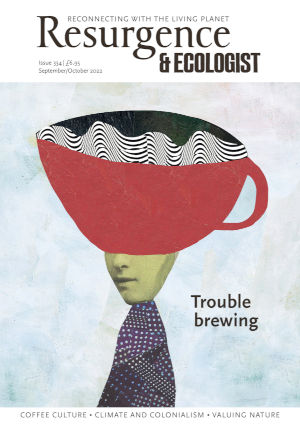At a time of at least four major global interlocking crises – climate change, conflict, Covid-19 and cost (the cost of food; the cost of life) – it can be difficult to focus on the broader ethical questions faced by society and by individuals. At least 800 million people go to bed hungry in the world every night, a moral tragedy amid a time of great plenty. At least 40 million of those people face chronic hunger and the risk of starvation, including in the Horn of Africa, which currently faces a major humanitarian crisis.
The issue of meat consumption and animal welfare may not be as high on many people’s minds at present as it could be, but it remains as important and as timely as ever – and as relevant to the four aforementioned crises. Meat production unquestionably plays its part in driving climate change. Conflicts in the world have a bearing on meat production – witness the challenges under way at present in terms of trade in animal feed as a result of the war in Ukraine – and pastoralist communities can fight over access to grazing land. Covid-19 may well have issued from zoonotic disease and humanity’s ever-closer interactions with the animal kingdom. And the price of food, and of life, includes the cost of meat (with butchers across the UK currently referring to as much as a 50% increase in the cost of some cuts of meat).
So this central issue of our time remains as pertinent as it has ever been. It is therefore all the more welcome that writer and thinker Rob Percival of the Soil Association has, with care, sensitivity and intellect, written a masterful book exploring and unpicking our relationship with animals. In chapter after thoughtful chapter, he unpacks and works through some of the ethical challenges associated with meat consumption, from the point of view of welfare, ethics, climate, farming and community.
As with Henry Mance’s book along similar lines (see Nicola Cutcher’s article Portrait of a Cow on page 18), this is a nuanced, well-researched and detailed account of some of the issues before us. Percival combines moral philosophy with environmental feeling, with a fair dose of good humour. His list of sources and interviewees ranges widely. His reflections on empathy for animals, combined with a desire to continue eating them (in small quantities, from time to time), struck me as particularly illuminating. So, too, his historical analysis of the roots of our desire to eat animals, and our long-standing evolutionary relationship with them.
This is a theme that will run and run, as we navigate the 21st century and beyond. Rob Percival’s guide to the debate is an excellent primer and well worth reading by anyone with an interest in the dilemma before us (in other words, the whole of humanity).







